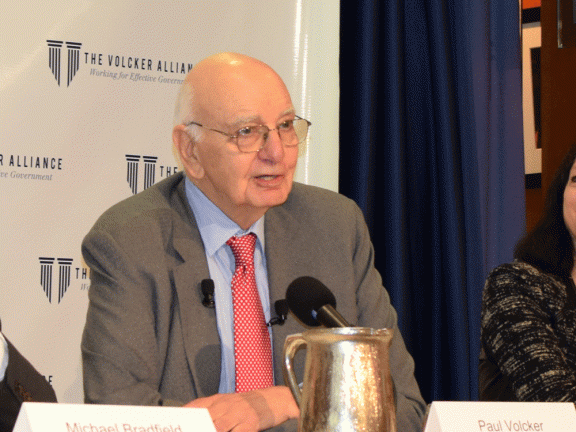Volcker Guest Lecturer for New York University Graduate Students

On November 2, 2015, Paul A. Volcker spoke with graduate students at the New York University Stern School of Business and School of Law as a guest lecturer for a course on managing financial services businesses. The students are exploring how counseling and managing financial institutions has changed in the wake of the financial crisis of 2008 and the new regulatory landscape.
Volcker described why recent culture shifts within in the industry necessitate a new approach. “The system has become so complex that it’s deeply depersonalized,” he remarked. This change makes it hard to instill the same sense of fiduciary responsibility. “Creating accountability is hard,” Volcker said, when “you don’t even have to see any of your customers.”
He said that today, regulation is viewed as an obstacle to be circumvented rather than the rules of the road. “The culture used to be, ‘this is the regulation and this is the way we follow it.’ Now,” he said, “there’s a new rule or regulation and the immediate reaction is, ‘we need to hire a team of lawyers to help us figure out how to get around this.’”
Volcker questioned a market structure that rewards high-frequency trading: “People pay millions of dollars just so they are capable of trading a nanosecond faster than anyone else. Is that the best way to be spending millions of dollar? Are those the type of market players who should be reaping the rewards?” He also stressed the need to enact more effective supervisory policies and create clearer accountability, citing the Volcker Alliance report Reshaping the Financial Regulatory System. One of the primary holes in current regulation is the need for a strategy to police shadow banking, which now accounts for much more of the financial market activity than traditional banking. As Volcker described, “Most financial activity going on now is twice removed from the basic functions of the market. This demonstrates the changing complexities of the market.”